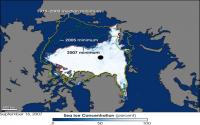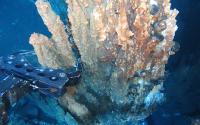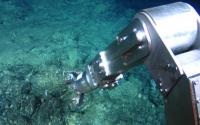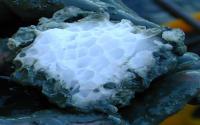Recent News

A new study finds little evidence to support the idea that the plummeting Arctic sea ice has meaningfully changed our weather patterns. The research, published today in Geophysical Research Letters, says links between declining Arctic sea ice and extreme weather are “an artifact of the methodology” and not real.
[ More ]
Controversial plans to mine the floor of the Pacific Ocean should not go ahead before Earth's 'urban mines' have been exploited, say campaigners.
[ More ]
Since shrinking at a torrid pace in the first half of July, the Arctic sea ice meltdown has slowed markedly.
[ More ]
Nautilus Minerals has faced some tough times over the past 12 months, its difficulties mainly related to a commercial dispute between the company and the government of Papua New Guinea (PNG) that arose in June 2012.
[ More ]
Arctic ice is losing its reflective sheen. It's common knowledge that each summer, more and more of the ice melts leaving the dark waters of the ocean uncovered – a process that accelerates global warming by reducing the amount of solar radiation reflected back into space. Now it turns out that the surviving sea ice is also becoming darker and less reflective.
[ More ]
The Cook Islands hopes to transform itself into one of the world's richest countries within a decade by sending robots to the sea floor to collect minerals that it believes are worth tens of billions of dollars.
[ More ]
The author warns, if seabed mining is allowed to go ahead without a comprehensive system of environmental protection in place we may be destroying species forever before they have even been scientifically described.
[ More ]
Scientists in Japan and the U.S. say they are moving closer to tapping a new source of energy: methane hydrate, a crystalline form of natural gas found in Arctic permafrost and at the bottom of oceans.
[ More ]
Rapid thawing of the Arctic could trigger a catastrophic "economic timebomb" which would cost trillions of dollars and undermine the global financial system, say a group of economists and polar scientists.
[ More ]
Billions of tonnes of the greenhouse gas methane are trapped just below the surface of the East Siberian Arctic shelf. Melting means the area is poised to deliver a giant gaseous belch at any moment - one that could bring global warming forward 35 years and cost the equivalent of almost a year's global GDP.
[ More ]